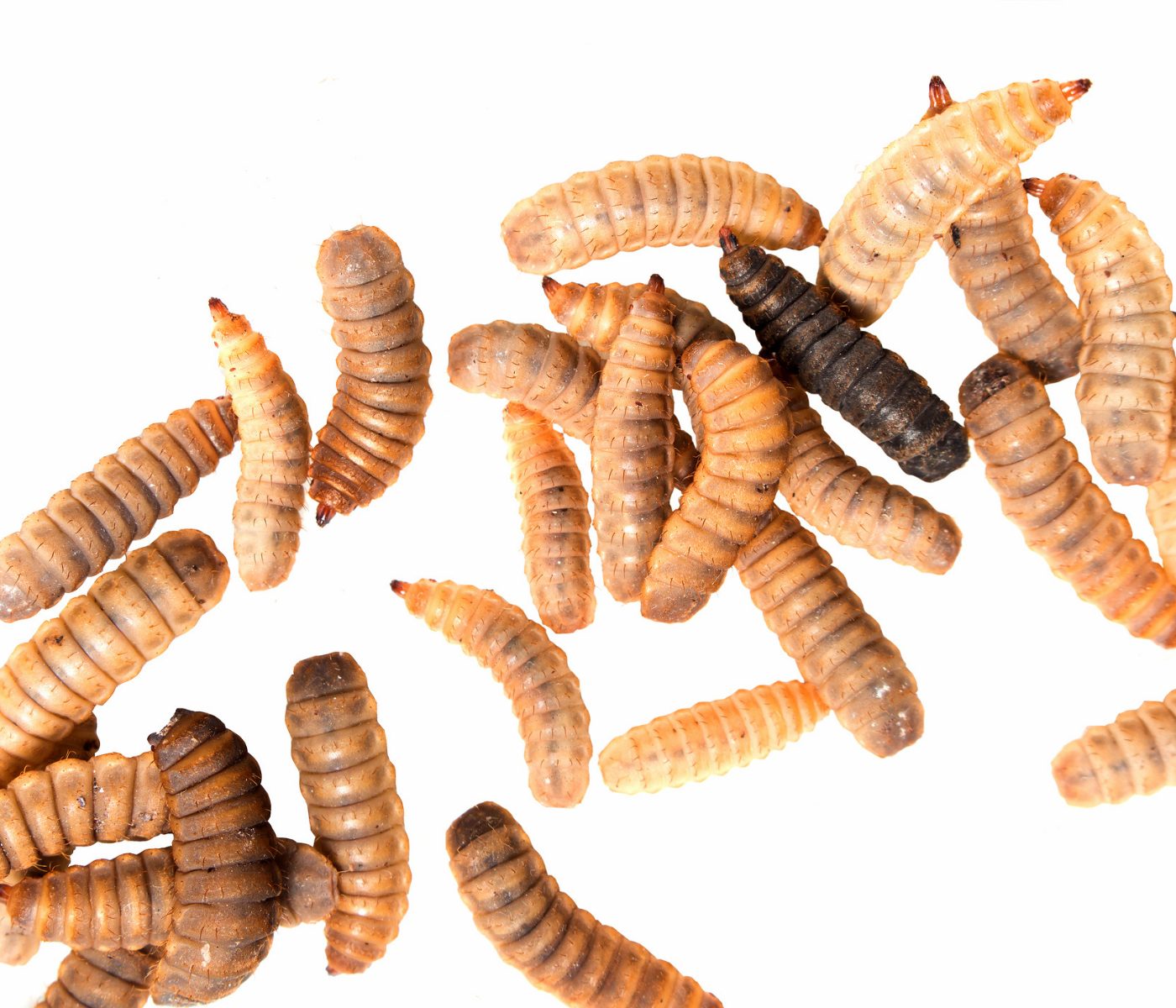 27 Jul 2022
27 Jul 2022
Insects in animal nutrition represent a growing trend with huge potential. It is important to understand what are the current regulations in regards to their inclusion in animal feed and what are some of the market perspectives around the globe.
More than just a source of nutrients
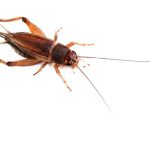
Some studies show that insects have prebiotic effects, as well as acting as immune response enhancers which confer greater disease resistance to several production animal species. Insects may contain bioactive compounds such as uric acid, antimicrobial peptides and chitin that can act as prebiotics, with the ability to:
![]()
Modulate intestinal microbiota
![]()
Boost immunity
![]()
Reduce mortality
![]()
Increase the shelf life of rations containing insect flour.
Chitin is the most common carbohydrate found in insects. The ability of monogastric animals to digest chitin is still a matter of discussion amongst researchers.
Scientific reports indicate that ingested chitin can promote different improvements such as:
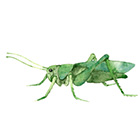
Researchers from UFLA and UFMG found that tilapia snared cornmeal presented improvement in immunological parameters (Alves et al. 2021). Improvements in immunological parameters of trout fed partially defatted black soldier fly larvae (Bruni et al., 2018) have also been reported. This study showed that:
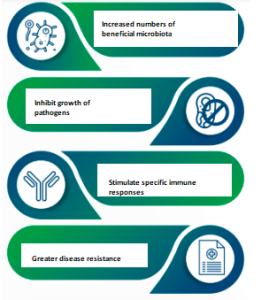
The same study also revealed that the substitution of up to 50% of fishmeal by partially defatted insect meal did not alter trout’s fillet yield. Studies conducted with laying hens and pigs have also reported beneficial effects on intestinal microbiota and antimicrobial effects against bacteria causing gastrointestinal diseases (Devi et al., 2014; Borelli et al., 2017).

| Regulatory aspects in regards to the use of insects in animal nutrition. |
In the European Union, the approval of insect use in animal nutrition occurred in July 2017. Where seven insect species were allowed to be included as fish feed:
[register]
![]()
House fly (Musca domestica)
![]()
Black Soldier fly (Hermetia illucens)
![]()
Mealworm (Tenebrio molitor and Alphitobius diaperinus)
![]()
Crickets (Ancheta domesticus, Gryllodes sigillatus e Gryllus assimilis)
 Very recently, on August 18, 2021, the European Union’s official Gazette published the authorization for the use of insects in poultry and pig feed. Which represents very favourable news for the industry.
Very recently, on August 18, 2021, the European Union’s official Gazette published the authorization for the use of insects in poultry and pig feed. Which represents very favourable news for the industry.
In North America, the use of insects as feed for fish, birds and pets is allowed.
Although it exceeds the focus of this article, it is worth mentioning that earlier this year, the European Food Safety Authority – EFSA – approved tenebrium beetle larvae as the first safe insect for human consumption within Europe.
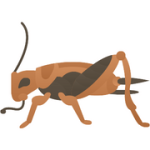 Crickets are currently being evaluated by the same agency, receiving a first positive nod in July/2021, which is an important step towards its legal approval. In Brasil, the use of insects in animal feed is only allowed for ruminant feeding.The list of approved raw materials to be used as ingredients, additives and vehicles in animal feed, contains the following insect species and forms of feed:
Crickets are currently being evaluated by the same agency, receiving a first positive nod in July/2021, which is an important step towards its legal approval. In Brasil, the use of insects in animal feed is only allowed for ruminant feeding.The list of approved raw materials to be used as ingredients, additives and vehicles in animal feed, contains the following insect species and forms of feed:
![]()
Cheap cinérea (Nauphoeta cinerea) dehydrated adult form
![]()
Chrysalid flour
![]()
Defatted chrysalid flour
![]()
Black soldier fly larvae dehydrated flour (Hermetia illucens)
![]()
Black cricket (Gryllus assimilis) dehydrated adult forms
![]()
Dehydrated Tenebrium larvae(Tenebrio molitor)
![]()
Dehydrated Giant Tenebrium larvae (Zophobas morio)
 To learn more about this topic see the book “Insects for Animal Feed in Brazil: production and regulatory aspects“.
To learn more about this topic see the book “Insects for Animal Feed in Brazil: production and regulatory aspects“.
| Market overview |
Recent market data and growing news about multimillion-dollar investments in insect-producing companies are prove of the enormous potential and rapid growth of this new production chain at a global scale. This scenario is basically linked to the possibility of mitigating two future problems associated with global population growth:
As a 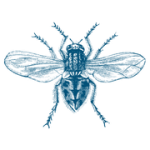 consequence of technical and regulatory advances in the production and use of food insects around the world, the number of producing companies has been growing exponentially. According to a market study published by Arcluster, a Singaporean consulting company, food insects, from a growth point of view are the most promising market niche among protein food alternatives, with a forecast to reach US$ 1.52 billion by 2023.Global Market Insights reported a global market size of US$ 112 million for the year 2019, with an estimated annual growth of 47% between 2019 and 2026, reaching more than US$ 1.5 billion in 2026.Given the growing relevance of the theme, not only from the market point of view, but also scientific, a journal was launched exclusively for the publication of scientific studies on the production and use of insects as food:
consequence of technical and regulatory advances in the production and use of food insects around the world, the number of producing companies has been growing exponentially. According to a market study published by Arcluster, a Singaporean consulting company, food insects, from a growth point of view are the most promising market niche among protein food alternatives, with a forecast to reach US$ 1.52 billion by 2023.Global Market Insights reported a global market size of US$ 112 million for the year 2019, with an estimated annual growth of 47% between 2019 and 2026, reaching more than US$ 1.5 billion in 2026.Given the growing relevance of the theme, not only from the market point of view, but also scientific, a journal was launched exclusively for the publication of scientific studies on the production and use of insects as food:
![]()
European Association (IPIFF)
![]()
North american (NACIA)
![]()
Asian (AFFIA)
![]()
Australian (IPAA)
![]()
African(AAIS)
![]()
Dutch(VENIK)
Currently, the European Association of Food Insect Producers (IPIFF ) has 78 members from 24 countries, and together produced more than 6,000 tons of food insects in 2019, with an investment of more than 1 billion euros in their companies. In Brasil, it is working for the formalization of ASBRACIA (Brazilian Association of Food Insect Breeders), which currently has more than 60 members.
| Business initiatives |
The following are just a few of the major developments worldwide in regards to business initiative related to this topic, so that the reader can grasp the dimension of how such initiatives have been configured in some countries.
As an example of large enterprises, which have drawn considerable investments, the following companies can be mentioned:
![]()
Ynsect (France) with investments rounding the US$ 399 million mark
![]()
Agriprotein (South Africa) with US$ 122 million invested
![]()
Protix (Netherlands) with an investment of US$ 70 million.

In the order of US$ 5 to 15 million invested, more than a dozen food insect companies could be cited around the world. I emphasize that the productive systems of food insects can
be quite simple, ranging from the simplest (where most Brazilian companies are) to the most robust, as observed in the examples mentioned. In Brasil, the production of insects for animal feed is still carried out on a small scale, being the commercialization essentially retail for aquarists, in addition to other PET creations, such as birds and reptiles. The first major Brazilian food insect production projects have already begun to be designed, although I can’t or can provide more details now.
The expectation is that the Brazilian and Latin American food insect market will be very heated in the coming years.
AL-QAZZAZ, M. F. A. et al. Effect of using insect larvae meal as a complete protein source on quality and productivity characteristics of laying hens. Revista Brasileira de Zootecnia, v. 45, n. 9, p. 518- 523, 2016.
[/register]
Subscribe now to the technical magazine of animal nutrition
AUTHORS

Nutritional Interventions to Improve Fertility in Male Broiler Breeders
Edgar Oviedo
The Use of Organic Acids in Poultry: A Natural Path to Health and Productivity
M. Naeem
Synergistic Benefits of Prebiotics and Probiotics in Poultry, Swine, and Cattle
Gustavo Adolfo Quintana-Ospina
Hybrid Rye Potential in Laying Hen Feed Rations
Gwendolyn Jones
A day in the life of phosphorus in pigs: Part I
Rafael Duran Giménez-Rico
Use of enzymes in diets for ruminants
Braulio de la Calle Campos
Minerals and Hoof Health in the Pregnant Sow
Juan Gabriel Espino
Impact of Oxidized Fats on Swine Reproduction and Offspring
Maria Alejandra Perez Alvarado